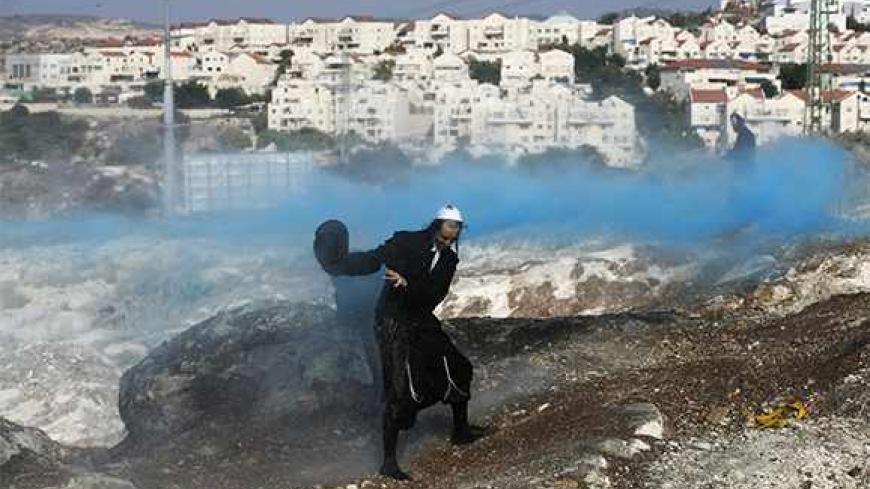Two contrasting images sum up the story of Beit Shemesh following the Oct. 22 municipal elections. On the night of Oct. 29, thousands of secular residents took part in a raucous demonstration against alleged fraud in the results. At the same time, ultra-Orthodox Mayor Moshe Abutbul — elected for another term — stood at the head of a procession of hundreds of ultra-Orthodox who slowly marched from his home to one of the synagogues in the city, to take part in a ceremony installing a new Torah scroll. At the same dark hour in which the secular rose up against the attempt to “steal” the election from them — as they put it — the ultra-Orthodox celebrants were overcome with joy. They exuberantly sang, danced, drank and feasted, as they carried the new Torah scroll into the synagogue's hall.
These two simultaneous events symbolize more than anything the drama and culture war taking place in the city a week after the polls. The day after the election, hundreds of ID cards were found scattered at the entrance of a building in one of the ultra-Orthodox neighborhoods in the city. It quickly became clear that ID card holders had given them — for a fee — to young ultra-Orthodox men who, in turn, had distributed them among ultra-Orthodox voters. These voters then cast their vote a second time by using other people’s ID cards.


